Growing Cannabis: Clones or Seeds, Which is Best?
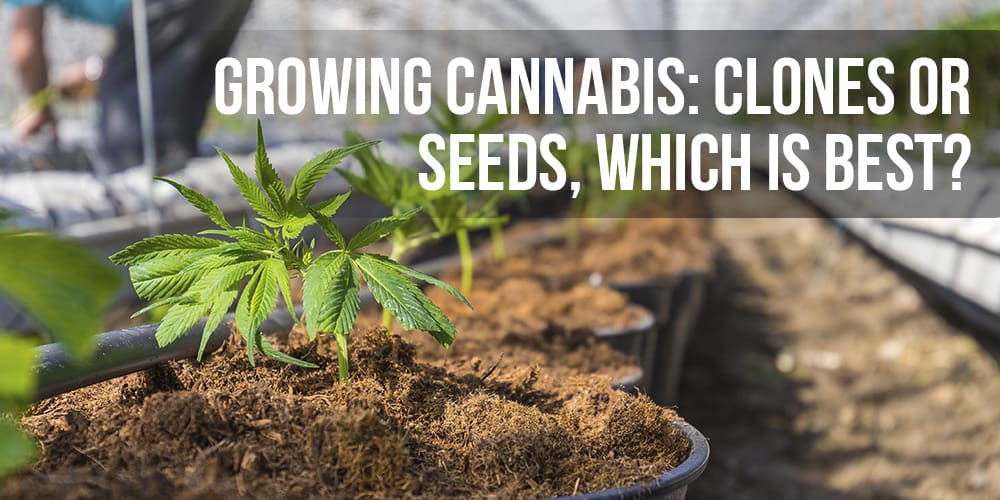
In the burgeoning world of cannabis cultivation, enthusiasts and commercial growers alike are met with a critical decision that shapes the trajectory of their garden: Clones or Seeds? This age-old debate is more than a mere choice; it’s a foundational strategy that impacts yield, potency, and the overall success of the harvest. As the cannabis industry continues to evolve, understanding the nuances between starting from clones or seeds becomes paramount.
- Ditch Weed vs. Cultivated Cannabis
- Brick Weed: What It Is And How It’s Made
- Recreational Weed: Navigating the Cannabis World
The Core Difference
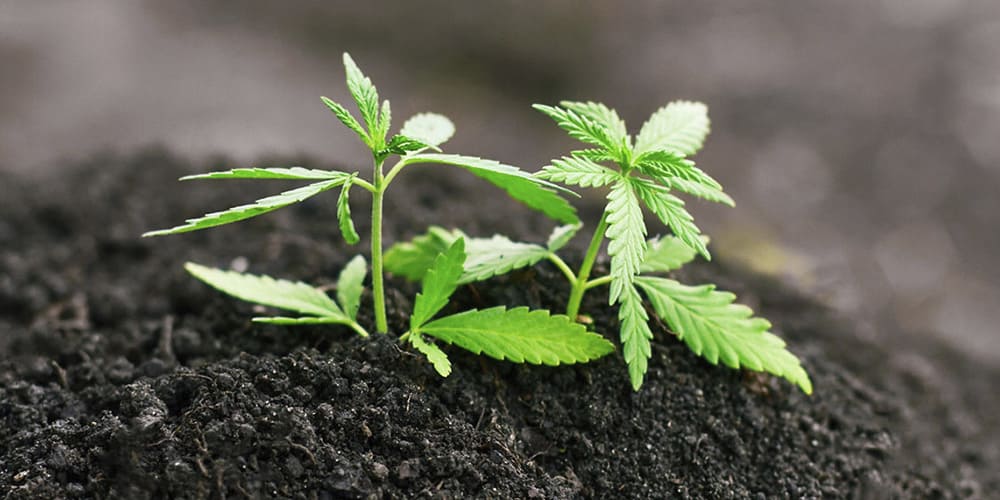
The choice between clones and seeds marks a pivotal decision in the life of a cannabis grower, defining not just the initial steps of cultivation but the very nature of the harvest to come. Seeds are the birthright of cannabis plants, encapsulating potential for a wide variety of genetic expressions. They represent a blank slate, offering a mix of characteristics from their parent strains, with each seed holding the promise of a unique plant.
Conversely, clones are cuttings from a mature plant, essentially genetic photocopies that will replicate the attributes of their source. This method guarantees the preservation of desirable traits, such as potency, aroma, and growth habits, ensuring a known quantity with each crop.
Cloning bypasses the seed germination stage, offering a more rapid onset of the vegetative growth phase. This speed and efficiency can be particularly advantageous in commercial operations where time is money. However, it’s worth noting that while clones maintain genetic fidelity, they also inherit any weaknesses of the mother plant, including susceptibility to diseases or pests.
On the other hand, seeds bring the excitement of discovery and the potential for genetic improvement. Seedlings might grow stronger and more vigorously, thanks to their natural development process, including the formation of a taproot, which clones lack.
The decision between starting with clones or seeds impacts not just the grower’s experience but also the final outcome of the cultivation process. Seeds offer a journey into the unknown, with each plant being a surprise in terms of its growth characteristics and final yield. Clones, while eliminating much of the guesswork in cultivation, require a stable and high-quality source, making the initial selection of the mother plant crucial.
Embark on an extraordinary journey with Alien OG 7 Diamond Infused Mini Joints. This potent Indica blend, known for its intense cerebral buzz and deep relaxation, offers a complex aroma of earthy pine and a hint of lemon.
Clones: A Snapshot of Consistency
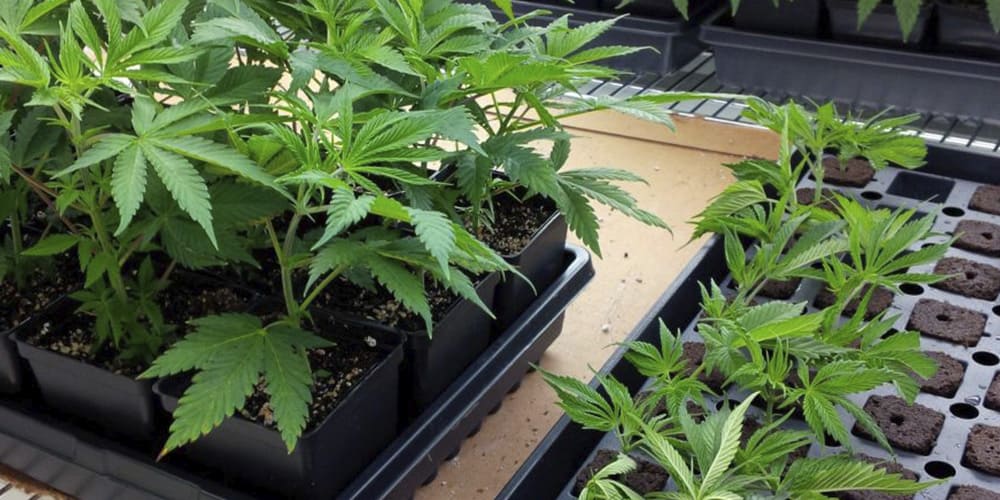
The allure of cloning lies in its promise of uniformity and stability. By selecting a robust, high-performing mother plant, growers can replicate its success indefinitely. This method is particularly advantageous for maintaining a consistent product in commercial operations, where uniformity in potency, flavor, and growth characteristics is paramount.
Advantages of Clones:
- Predictability: Clones guarantee the same genetic makeup as their mother, ensuring consistent quality and traits.
- Time Efficiency: Clones skip the seed germination phase, offering a head start in the growth cycle.
- Space Optimization: With known growth patterns, clones facilitate better space management in the grow area.
Disadvantages of Clones:
- Genetic Limitations: Clones carry the same vulnerabilities as their mother plant, including susceptibility to diseases.
- Accessibility Issues: High-quality clones can be hard to come by and may carry a risk of pests or diseases from their original environment.
- Genetic Drift: Over time, clones of clones can exhibit slight variations, potentially leading to a decline in vigor.
Seeds: The Cradle of Diversity
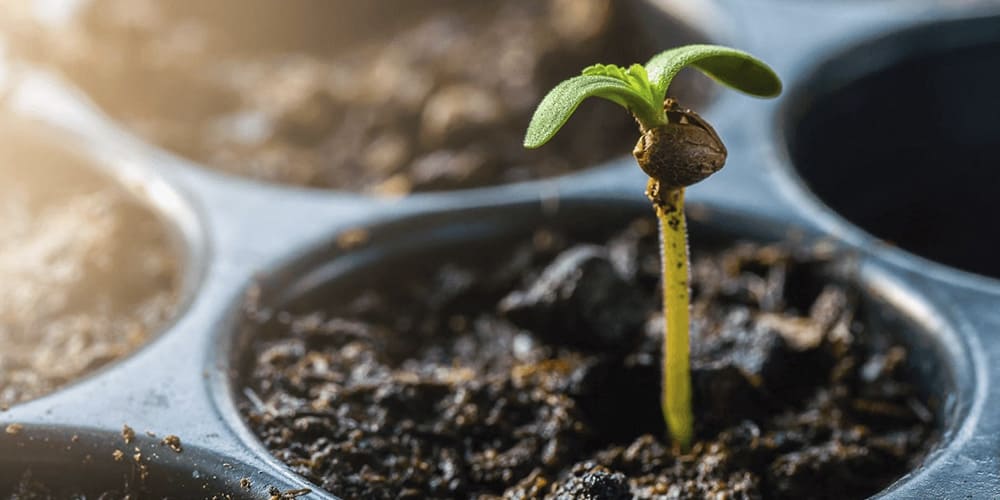
Germinating seeds is the traditional route of cannabis cultivation, offering a fresh start with each cycle. This method is celebrated for its genetic diversity, allowing natural selection to play its role in the evolution of cannabis strains.
Advantages of Seeds:
- Genetic Diversity: Seeds offer a wide array of phenotypes, leading to unique expressions of flavors, aromas, and potency.
- Vigor and Resilience: Seed-grown plants often exhibit more robust growth and resilience against pests and diseases, thanks to their taproot system.
- Access to Genetics: The global seed market provides access to an extensive range of strains, including the latest hybrids and landraces.
Disadvantages of Seeds:
- Unpredictability: Seeds can produce male or female plants, requiring sex identification and the removal of males to prevent pollination.
- Longer Start-Up Time: Germinating seeds and waiting for seedlings to develop takes longer than starting with clones.
- Space Inefficiency: The variability in growth patterns and sizes can lead to inefficient use of grow space.
Ignite your day with Kool Aid 4 Mini Joints, a rare sativa-dominant hybrid perfect for morning or afternoon uplift. Experience a burst of energy and a wave of creativity, thanks to its invigorating effects.
Making the Decision: Clones or Seeds
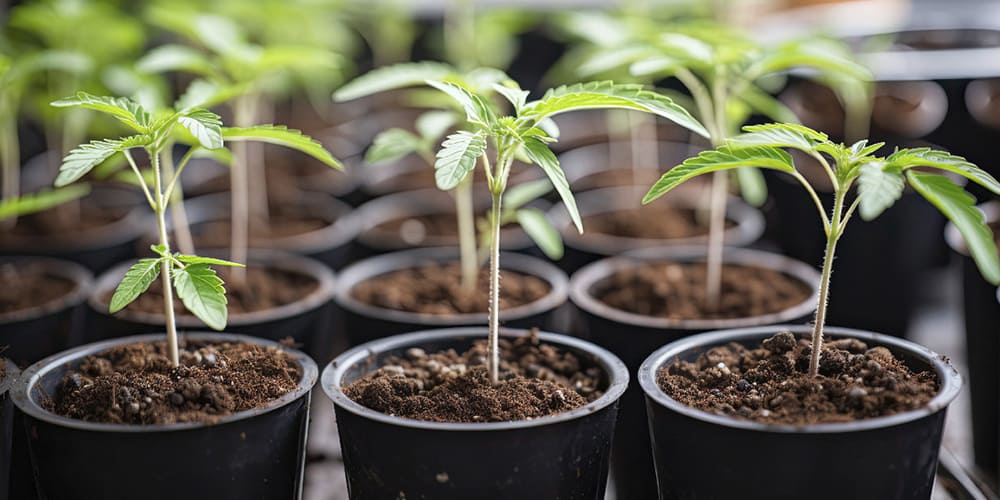
Deciding whether to use clones or seeds is a multifaceted consideration that touches on various aspects of cultivation, from operational goals to personal preferences and even philosophical inclinations towards plant growth. For many growers, the allure of clones lies in their reliability and the shortcut they offer to a harvest of known quality.
This can be especially appealing for commercial cultivators who need to ensure consistency in their product for market demands. However, the reliance on clones can also be seen as a limitation, a safe path that potentially misses out on the diversity and resilience that seeds can introduce.
For enthusiasts and breeders, seeds represent the essence of cultivation—a chance to explore genetic diversity and possibly uncover new, desirable traits. This exploration can lead to the development of unique strains that offer new flavors, aromas, and effects. Seeds also allow for a more natural plant development process, which can contribute to increased resilience against environmental stresses.
Yet, the use of seeds introduces variability and requires a keen eye to manage the garden effectively, identifying male plants and optimizing conditions for the best phenotypic expressions of each plant.
Ultimately, the choice between clones or seeds may come down to the grower’s specific circumstances, including their cultivation environment, the level of control desired over the outcome, and their willingness to engage with the plant’s lifecycle from the very beginning. Both options offer valuable pathways to successful cultivation, with clones offering a streamlined route to predictable results and seeds presenting an opportunity for discovery and mastery over the craft of cannabis cultivation.
Dive into the rich essence of JEALOUSY Premium Flower, where the perfect harmony of Sativa and Indica meets. Experience a luxurious journey with its spicy yet sweet fruity aroma, offering a complex sensory delight.
Choosing the Right Start for Your Grow Goals
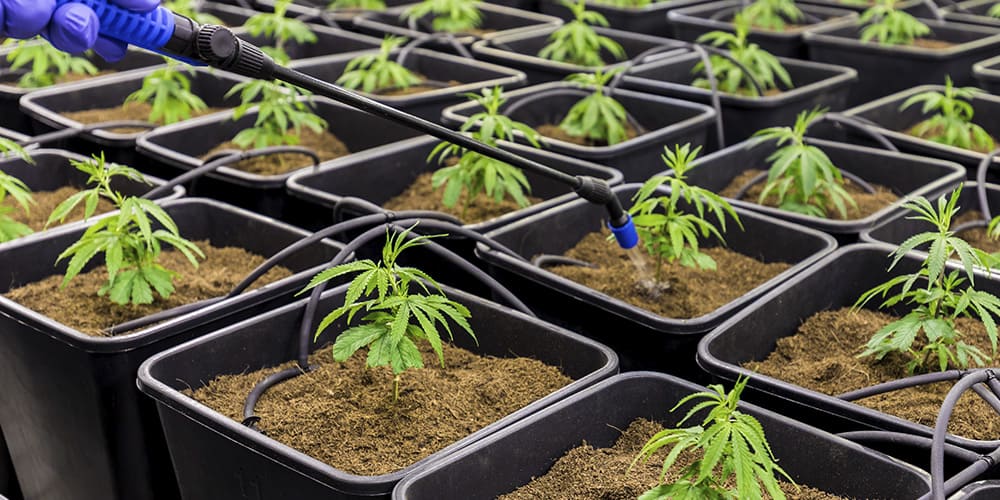
In the ongoing discussion between clones and seeds for cannabis cultivation, no single approach suits everyone. Each method offers unique benefits and challenges, tailored to meet various growers’ needs and aspirations. Those who prefer the uniformity and predictability found in clones might find this route more aligned with their objectives. On the other hand, growers intrigued by the potential for genetic diversity and discovery may gravitate towards seeds.
The cannabis industry’s landscape is constantly shifting, bringing new cultivation techniques and insights to the forefront. Staying informed and flexible allows cultivators to adeptly manage the intricacies of choosing between clones and seeds. This adaptability is crucial for ensuring a productive and enjoyable growing experience, tailored to each grower’s specific goals and resources.
Embarking on a cultivation journey, whether it begins with a seed or a clone, is a deeply personal and rewarding endeavor. It’s a process that not only requires scientific knowledge and cultivation skills but also embodies the art of nurturing and growth. This journey from the initial choice to the final harvest highlights the blend of art and science that defines the essence of cannabis cultivation.















